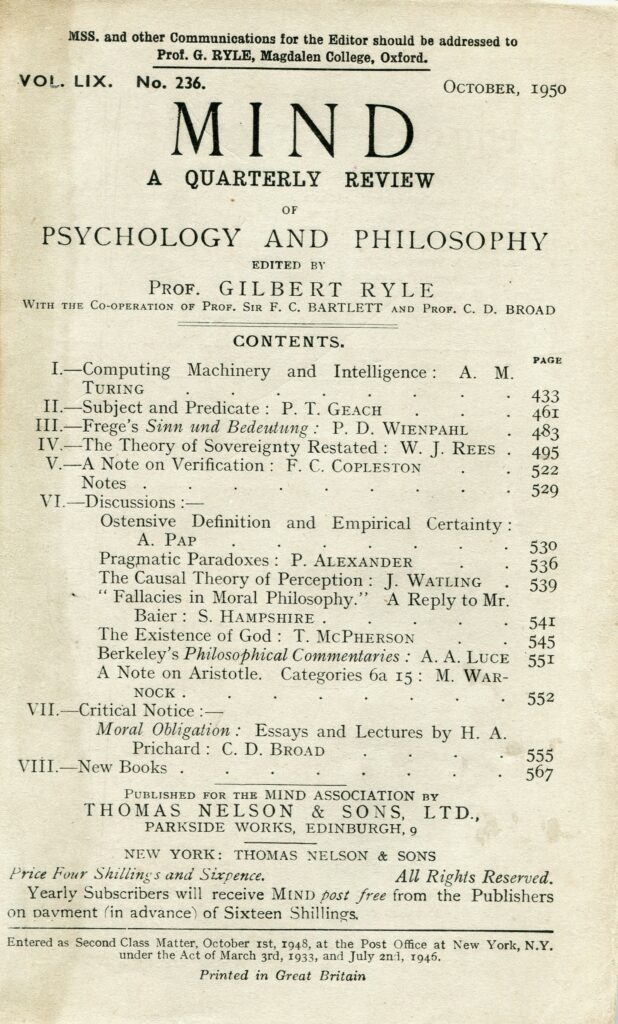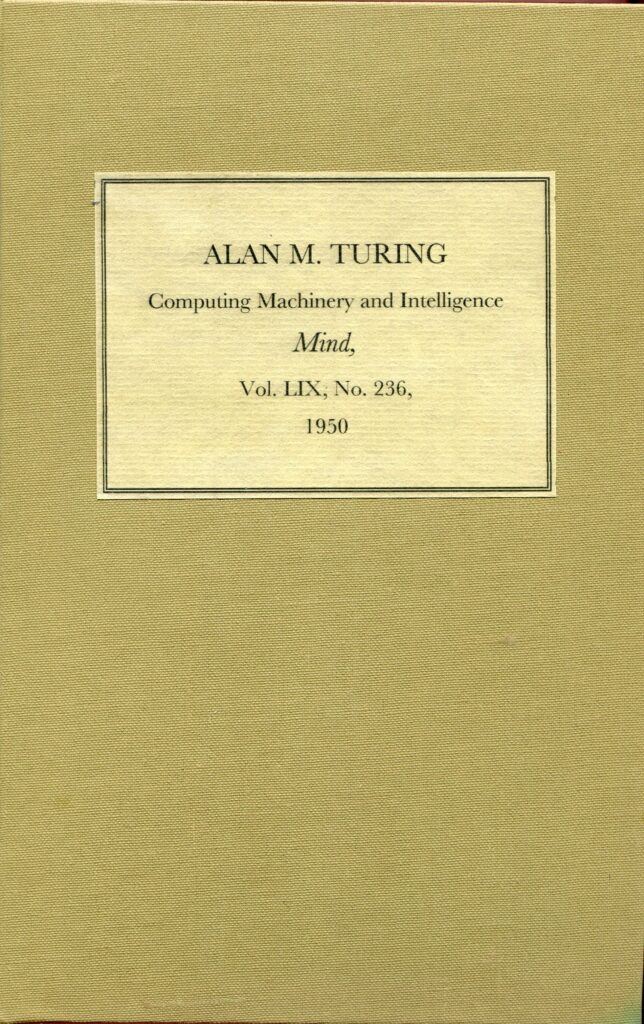

First edition. ‘The most famous of Turing’s contributions to philosophy is without doubt the ‘Turing Test’ for machine intelligence which appeared in his 1950 paper ‘Computing Machinery and Intelligence’. This paper contains an excellent lay introduction to digital computers (then extremely novel devices) in addition to its philosophical content. The test attempts to ‘operationalize’ intelligence. Turing introduced the test through what he called the imitation game, in which two contestants – a man and a woman – both try to convince an observer into thinking that they are actually the woman. The observer is linked to the contestants solely by teletype and can ask any question he or she wishes, and the contestants can answer in whatever way seems to them most likely to help them win. The male contestant will of course provide misleading answers intended to confuse the observer. Machine intelligence enters the picture when Turing allows for the replacement of the male contestant with a computer program. The program is declared to be intelligent if the observer does no better at correctly selecting the woman when the computer is playing against the program than against male contestants. Most of the paper is devoted to Turing’s replies to various objections against the possibility of machine intelligence [many of which] are still at the centre of the debate about artificial minds’ (Dictionary of Twentieth-Century British Philosophers, Thoemmes Press, 2005).
